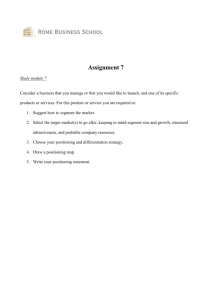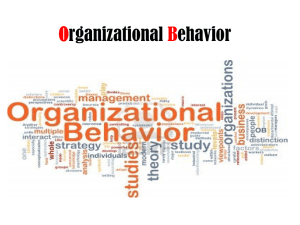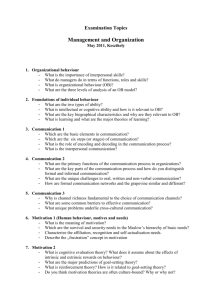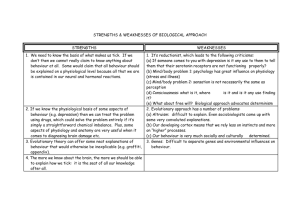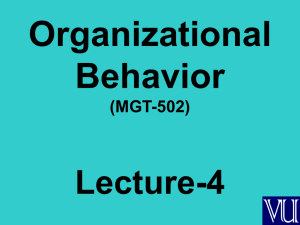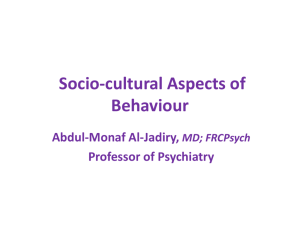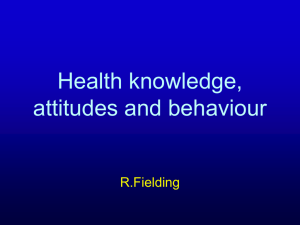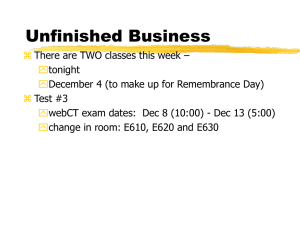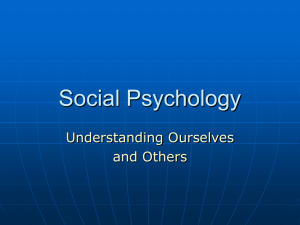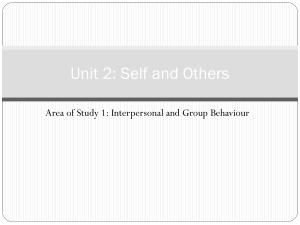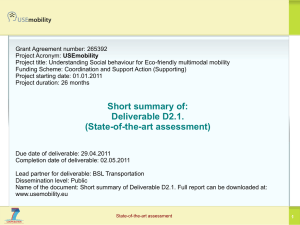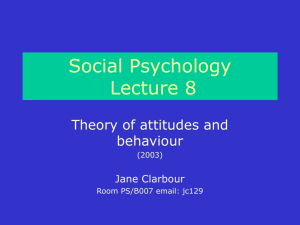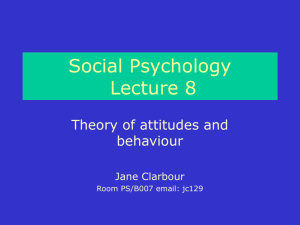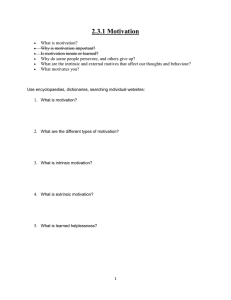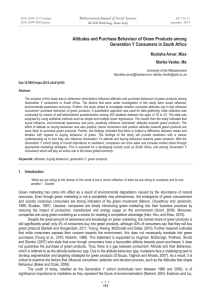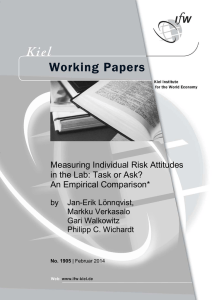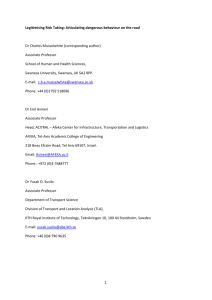Consumer Behaviour Lecture Notes
advertisement
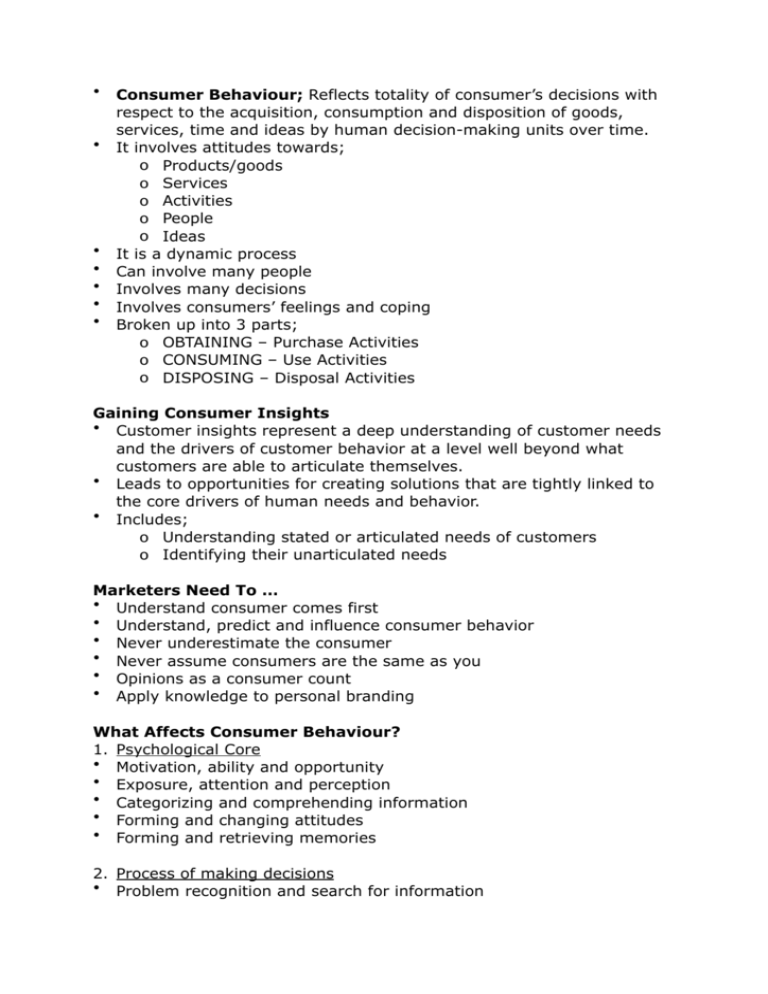
• • • • • • • ! Consumer Behaviour; Reflects totality of consumer’s decisions with respect to the acquisition, consumption and disposition of goods, services, time and ideas by human decision-making units over time. It involves attitudes towards; o Products/goods o Services o Activities o People o Ideas It is a dynamic process Can involve many people Involves many decisions Involves consumers’ feelings and coping Broken up into 3 parts; o OBTAINING – Purchase Activities o CONSUMING – Use Activities o DISPOSING – Disposal Activities Gaining Consumer Insights • Customer insights represent a deep understanding of customer needs and the drivers of customer behavior at a level well beyond what customers are able to articulate themselves. • Leads to opportunities for creating solutions that are tightly linked to the core drivers of human needs and behavior. • Includes; o Understanding stated or articulated needs of customers o Identifying their unarticulated needs ! Marketers Need To … • Understand consumer comes first • Understand, predict and influence consumer behavior • Never underestimate the consumer • Never assume consumers are the same as you • Opinions as a consumer count • Apply knowledge to personal branding ! What Affects Consumer Behaviour? 1. Psychological Core • Motivation, ability and opportunity • Exposure, attention and perception • Categorizing and comprehending information • Forming and changing attitudes • Forming and retrieving memories ! 2. Process of making decisions • Problem recognition and search for information • • Judgments and decisions Post decision evaluations 3. • • • • • Consumer’s culture External processes/influences Consumer diversity Social class and household Values, personality and lifestyles Reference group and other social influences 4. • • • Consumer behaviour outcomes Symbolize who we are; external signs used to express our identity Diffuse through a market – influence others decision making Ethics and social responsibility ! ! ! Who Benefits from study of Consumer Behaviour? • Marketing managers • Ethicists/advocacy groups • Public policy makers/regulators • Academics • Consumers ! Marketing Implications of Consumer Behaviour • Developing/implementing customer orientation o Segmenting market o Profitability of each segment o Characteristics of each segment o Customer satisfaction at each segment • Selecting the target market • Product positioning decisions o Positioning of competition o Our positioning o Repositioning existing offerings • Products/services development decisions o Consumers ideas for new products o Additional/different attributes o Brand naming o Packaging and logo design • IMC Decisions; o Advertising objectives o Words and visuals of ads o Ad placement (when and where) o Sales promotion objectives o Effectiveness of sales promotions • Pricing decisions; o What the price should be Core I Motivation • • ! Motivation; an inner state of arousal that provides energy needed to achieve a goal. Motivated consumer is energized, ready and willing to engage in goalrelevant activity. Outcomes of Motivation • High effort behaviour • Processing information and making decisions o Desire to process information accurately o Motivated reasoning • Felt involvement; o Enduring involvement; when we show interest in something over a long period in time. o Situational involvement; temporary interest in an offering / activity / decision. o Cognitive involvement; Interest in thinking and processing information about something. o Affective involvement; Interest in expending emotional energy ad evoking deep feelings about something. ! What Affects Motivation? • Personal Relevance – The extent to which it has a direct bearing on and significant implications for your life. • Consistency with Self Concept – Our mental view of who we are; your view of yourself and they way you think others view you. • Values – Beliefs about what is right, important or good. • Needs – An internal state of tension caused by disequilibrium from an idea/desired physical or psychological state. (Maslow’s Hierarchy.) • Goals – Outcomes that we would like to achieve. • Perceived Risk – Extent to which the consumer is uncertain about the consequences of an action. • Inconsistency with attitudes – The extent to which new information is consistent with previously acquired knowledge or attitudes. ! Needs • An internal state of tension caused by disequilibrium from an ideal or desired state. • Maslow’s Hierarchy; o Physiological o Safety o Social o Egoistic o Self-Actualization • Needs not always ordered in this hierarchy
